
As Schwarz (2016) recalls, Winston Churchill once described Iran’s oil – “which the U.K. was busy stealing at the time” — as “a prize from fairyland far beyond our brightest hopes.” Churchill was right, but was seemingly unaware at the time that this would be the kind of fairy-tale blessing whose treasures almost invariably come tied with various terrible curses.
Oil Blessings & The U.S. Dollar
📕 “Maps, aesthetically scientific” →
📕 “Oil’s corruptive capacity” →
Recall that BP which is now British Petroleum (or ‘Beyond Petroleum’) was once, basically, British Persian.
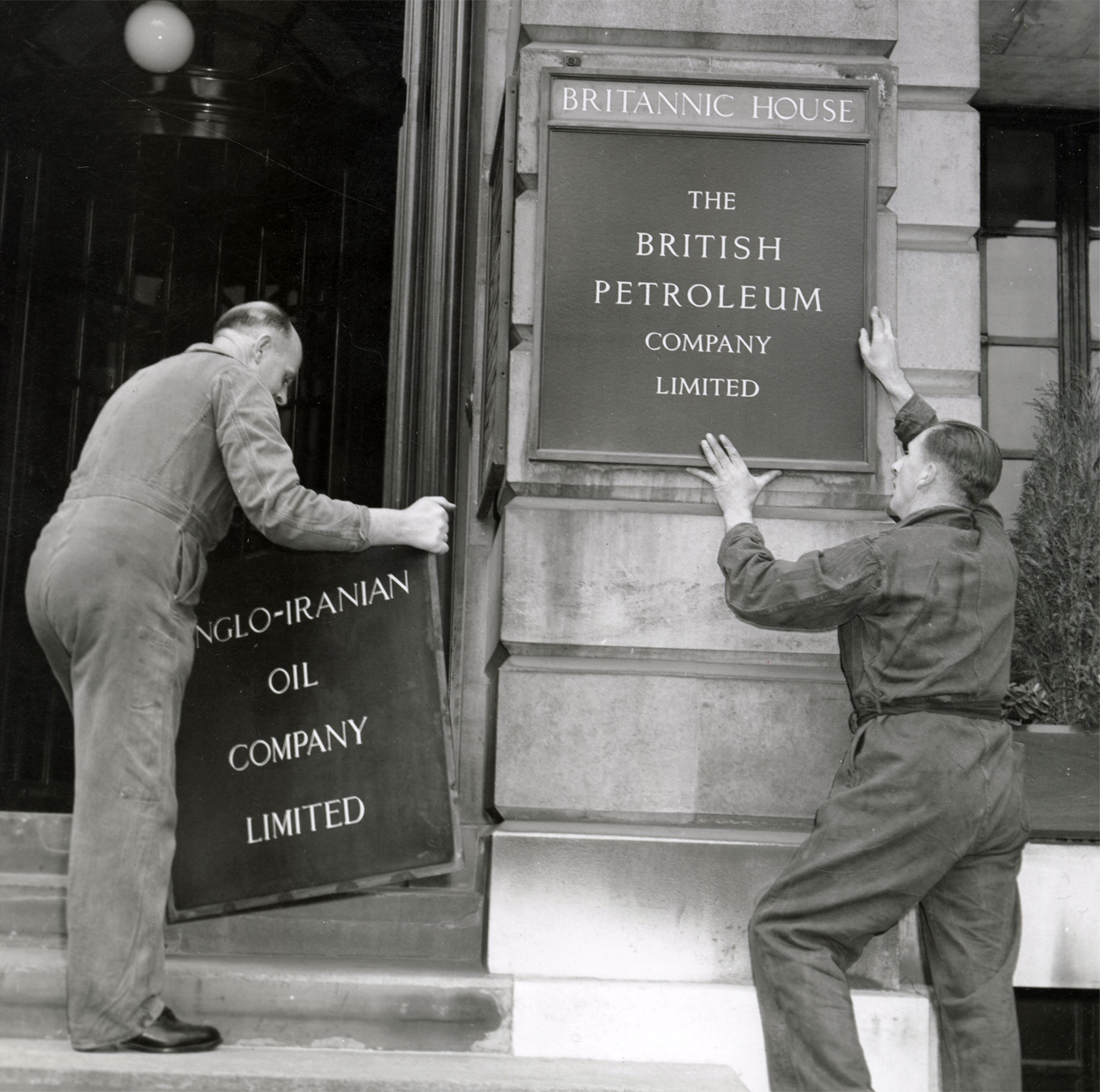
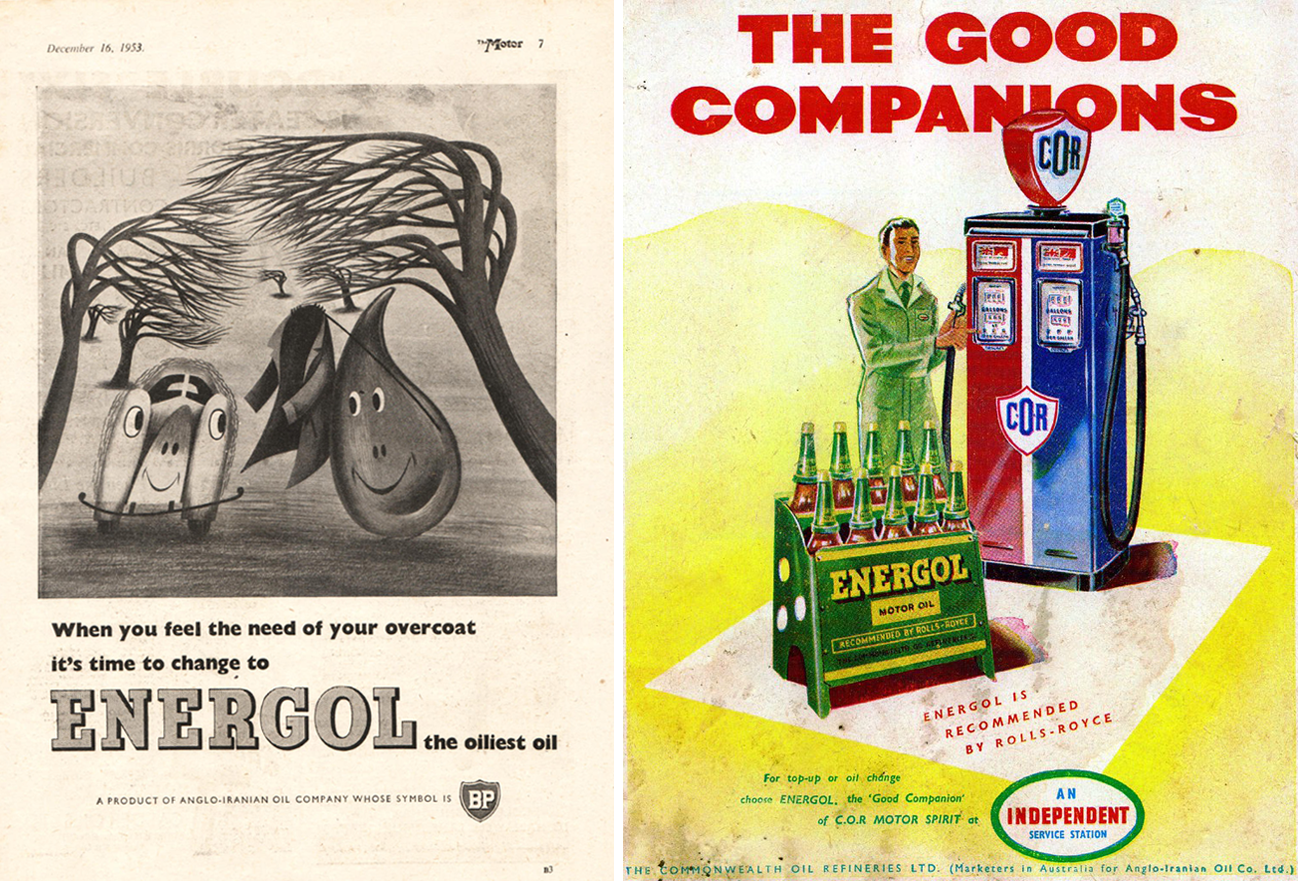
Its all about the (the control of the) oil
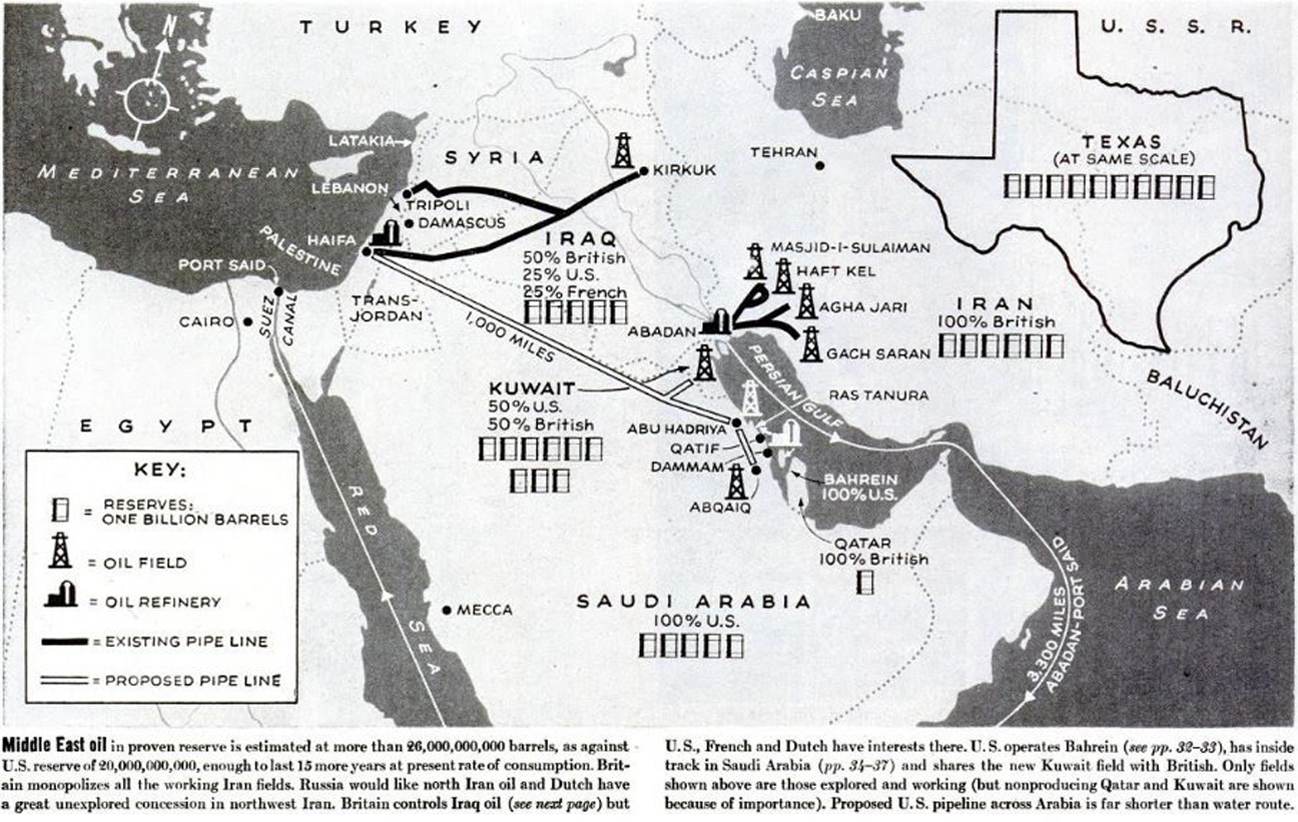
It is hard not to see how the commercial extraction and exportation of oil since before the creation of the modern nation state, in most instances, on the Arabian peninsular has not had an elemental impact on these countries’ political and socioeconomic trajectories since the early decades of the last century.
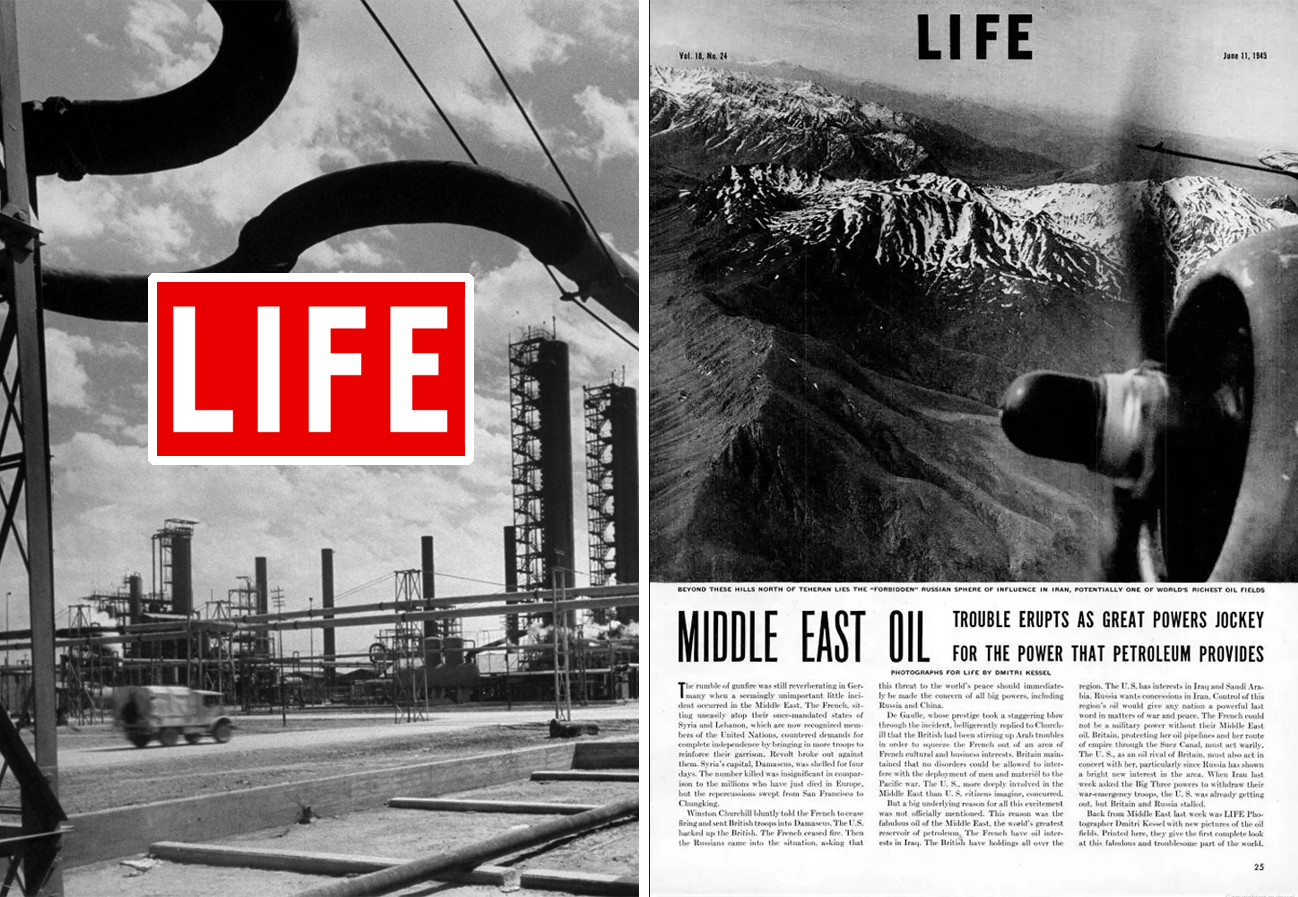
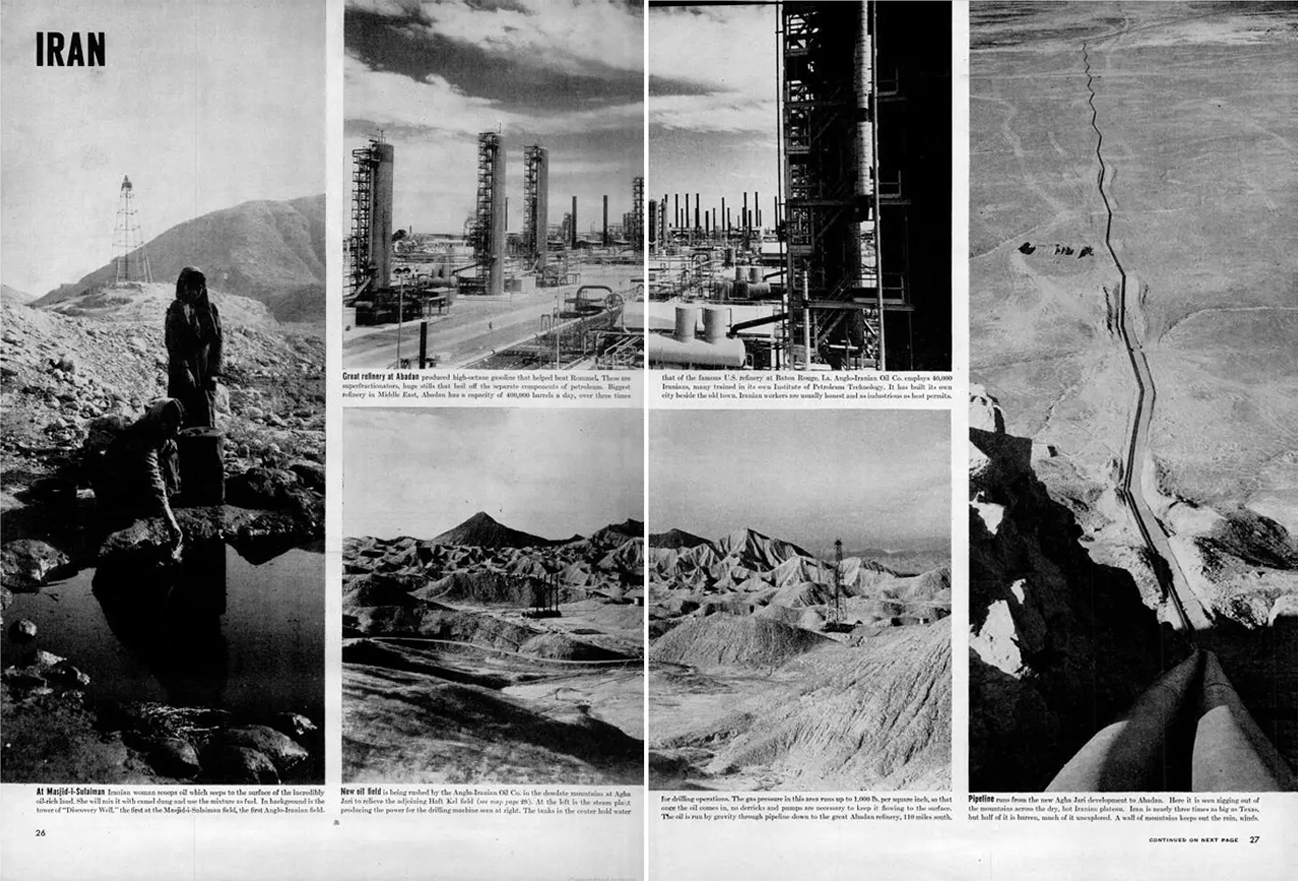
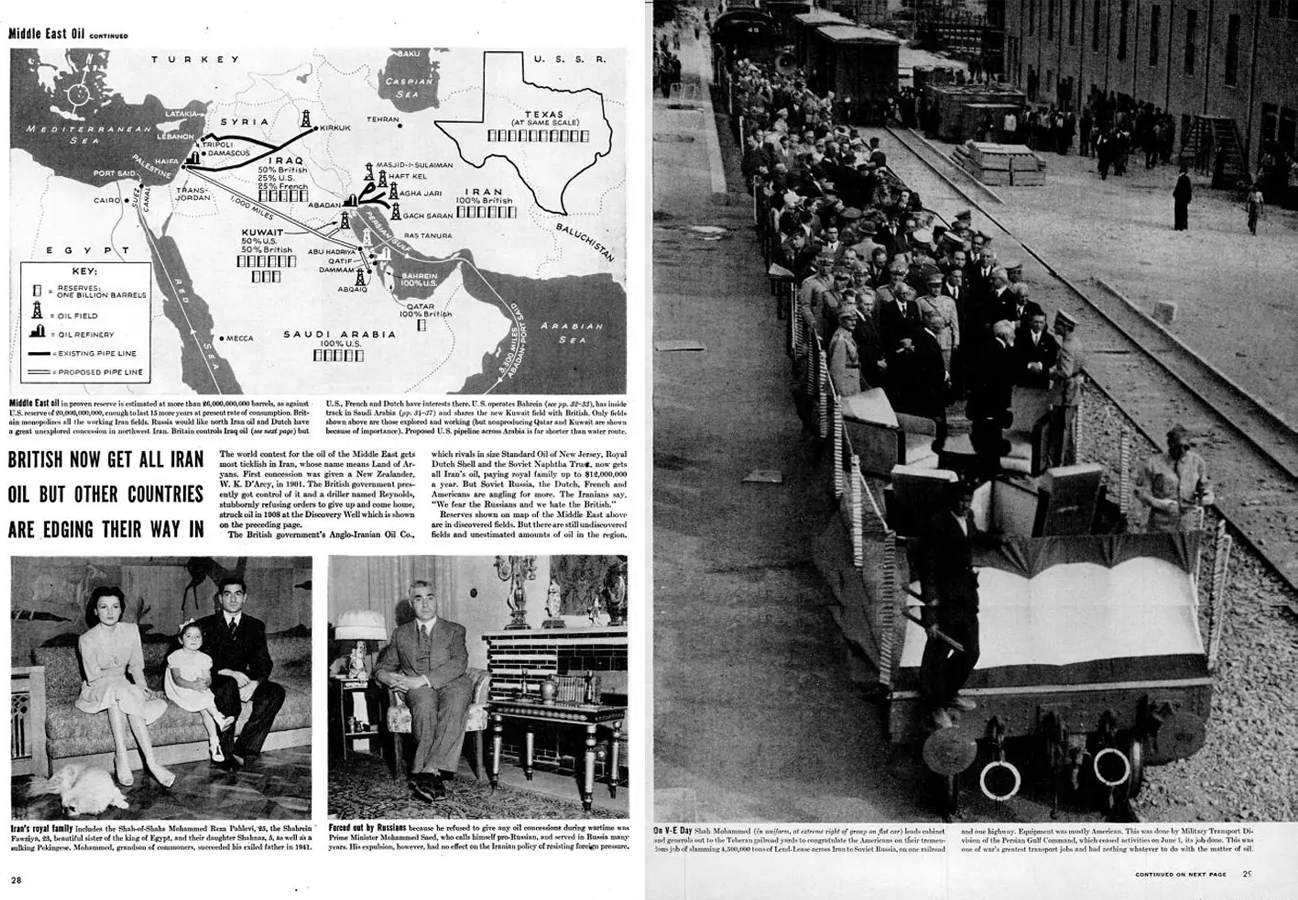
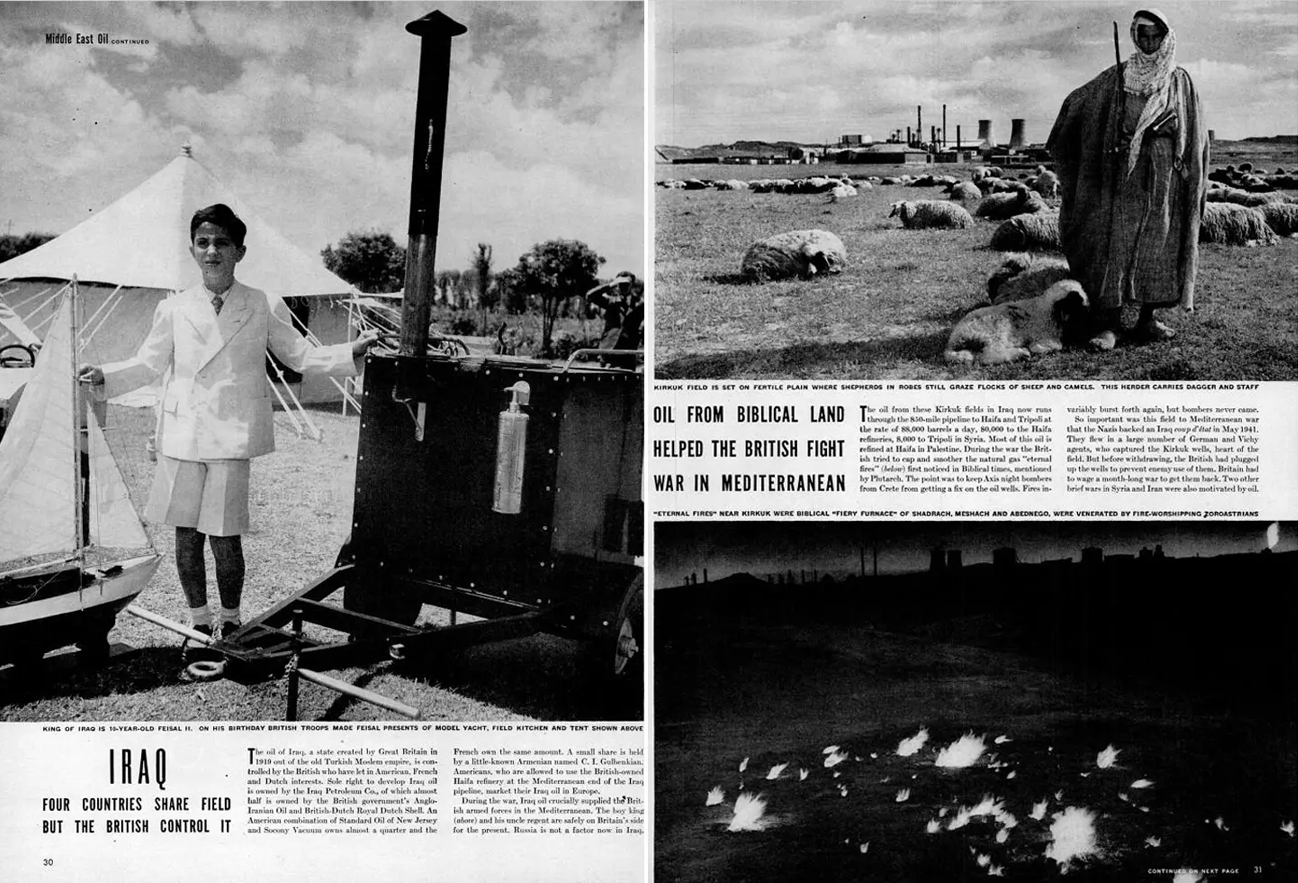
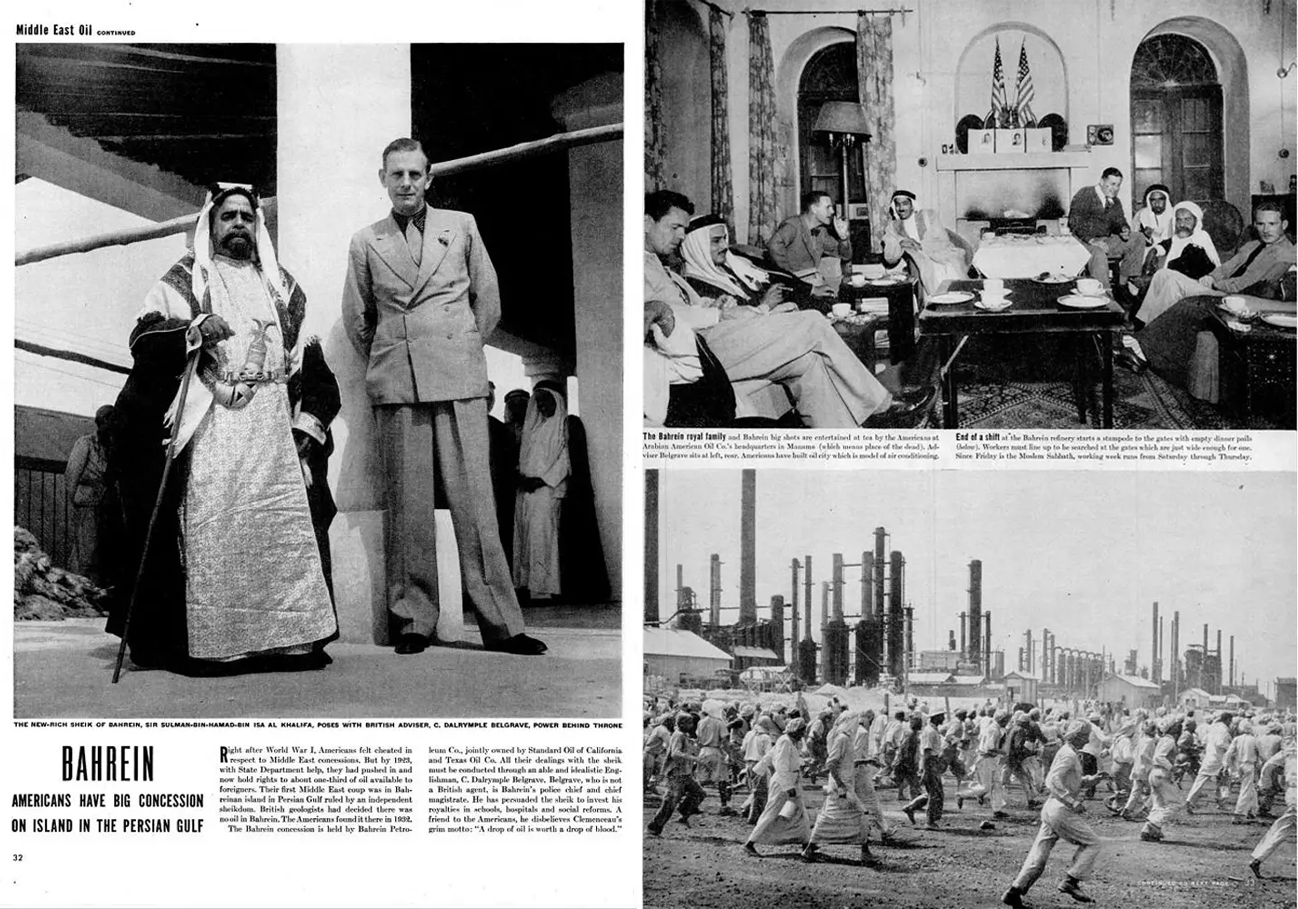
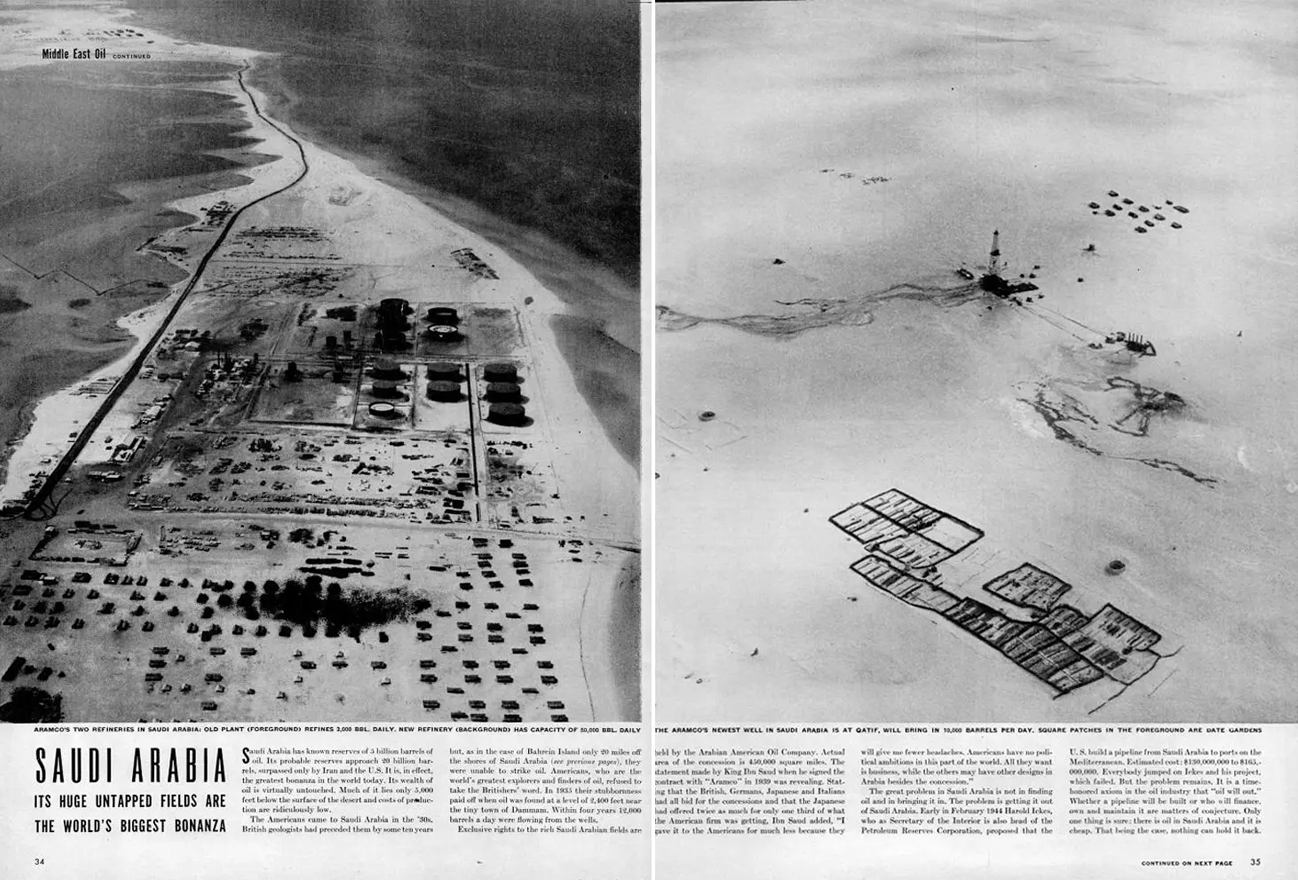
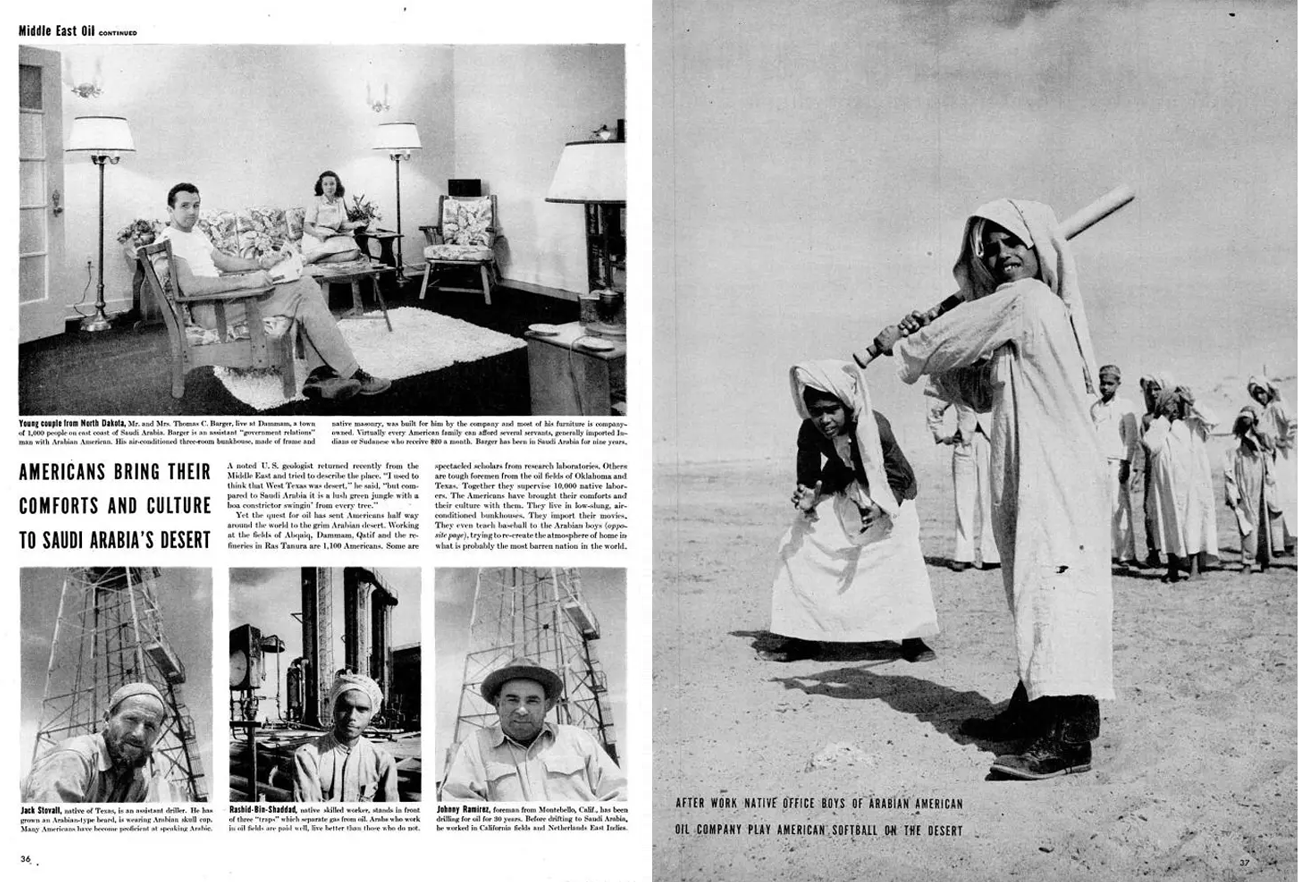
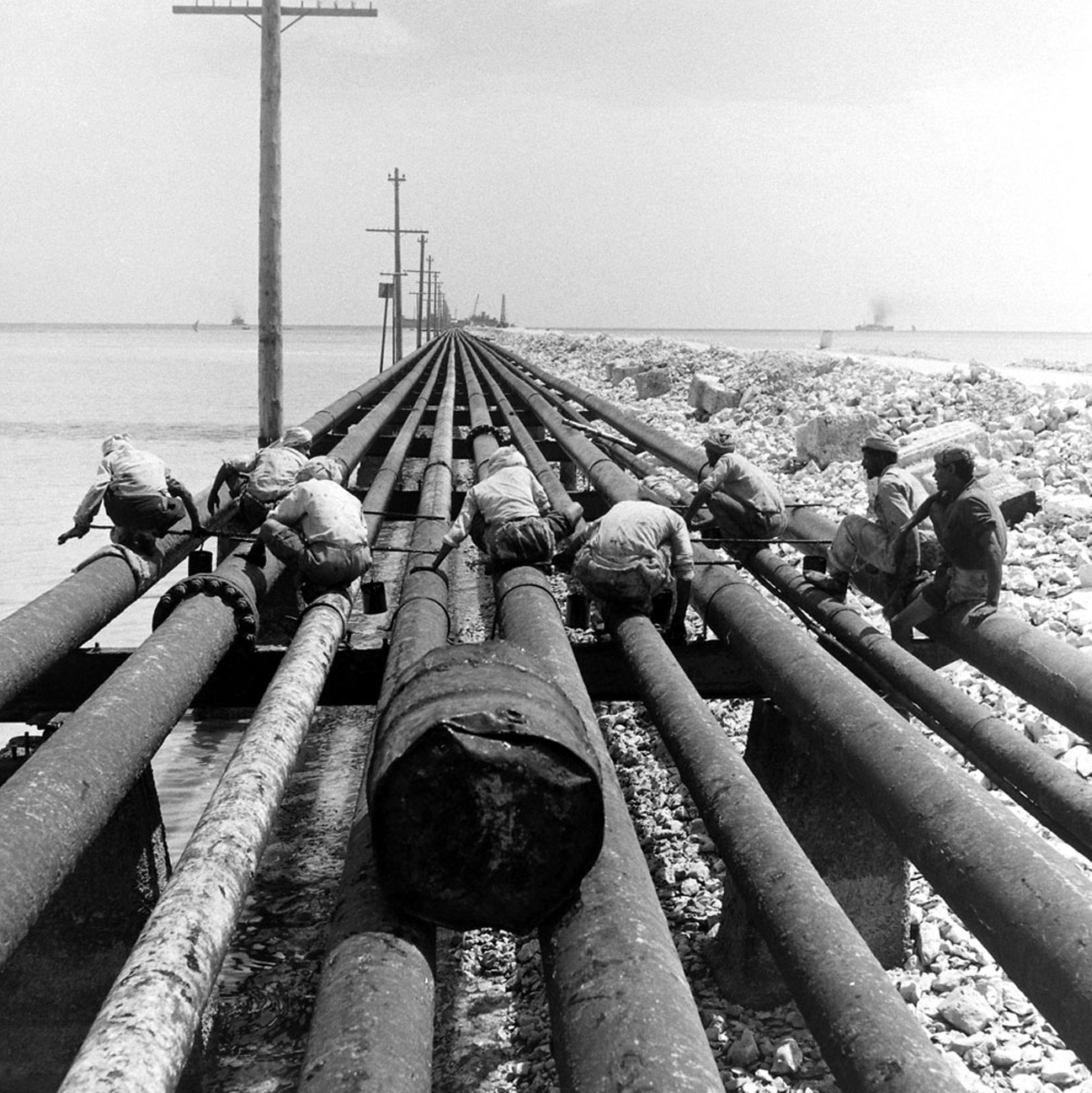
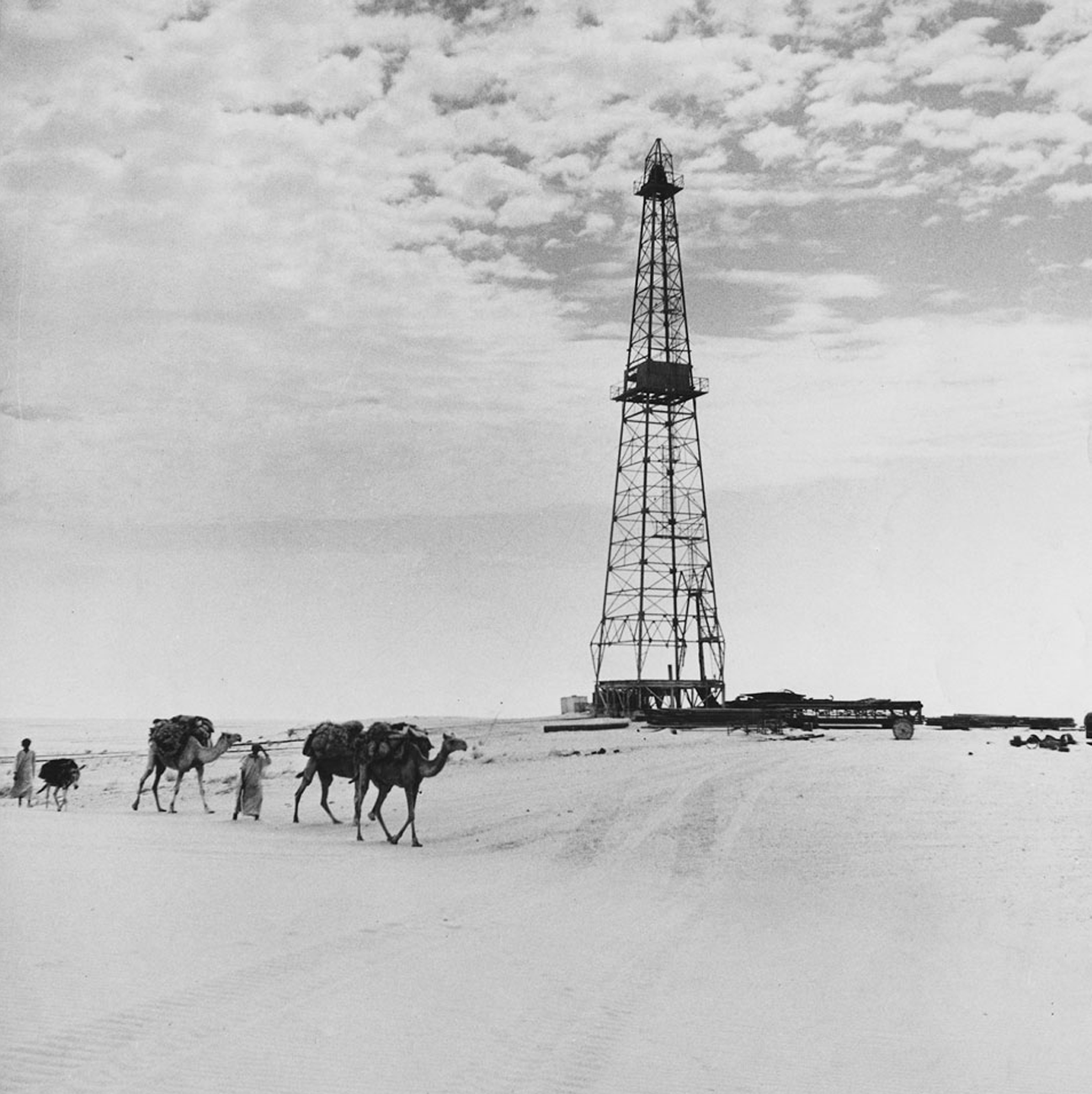
As per a 1957 Time magazine piece, “THOUGH Britain has populated the Middle East with British political advisers to Arab rulers, and for a time seemed to be running the whole show, in economic fact the region has in recent years been dominated by U.S. companies, who stay out of local politics. They produce about twice as much of the Middle East’s oil as the British. and own nearly 60% of the area’s known reserves. Tiny, treeless Kuwait. the richest producing state in the rich Middle East, is, for example, a sheikdom under British protection and equipped with a British political agent, but its British producing company is half-owned by Gulf Oil (U.S.). Americans also team up with British. Dutch and French interests in Iraq. But Saudi Arabia’s Aramco is entirely an American concession—a syndicate formed by Standard Oil of California, the Texas Co. and Jersey Standard Oil (Esso), plus a smaller share to Mobil Oil.”
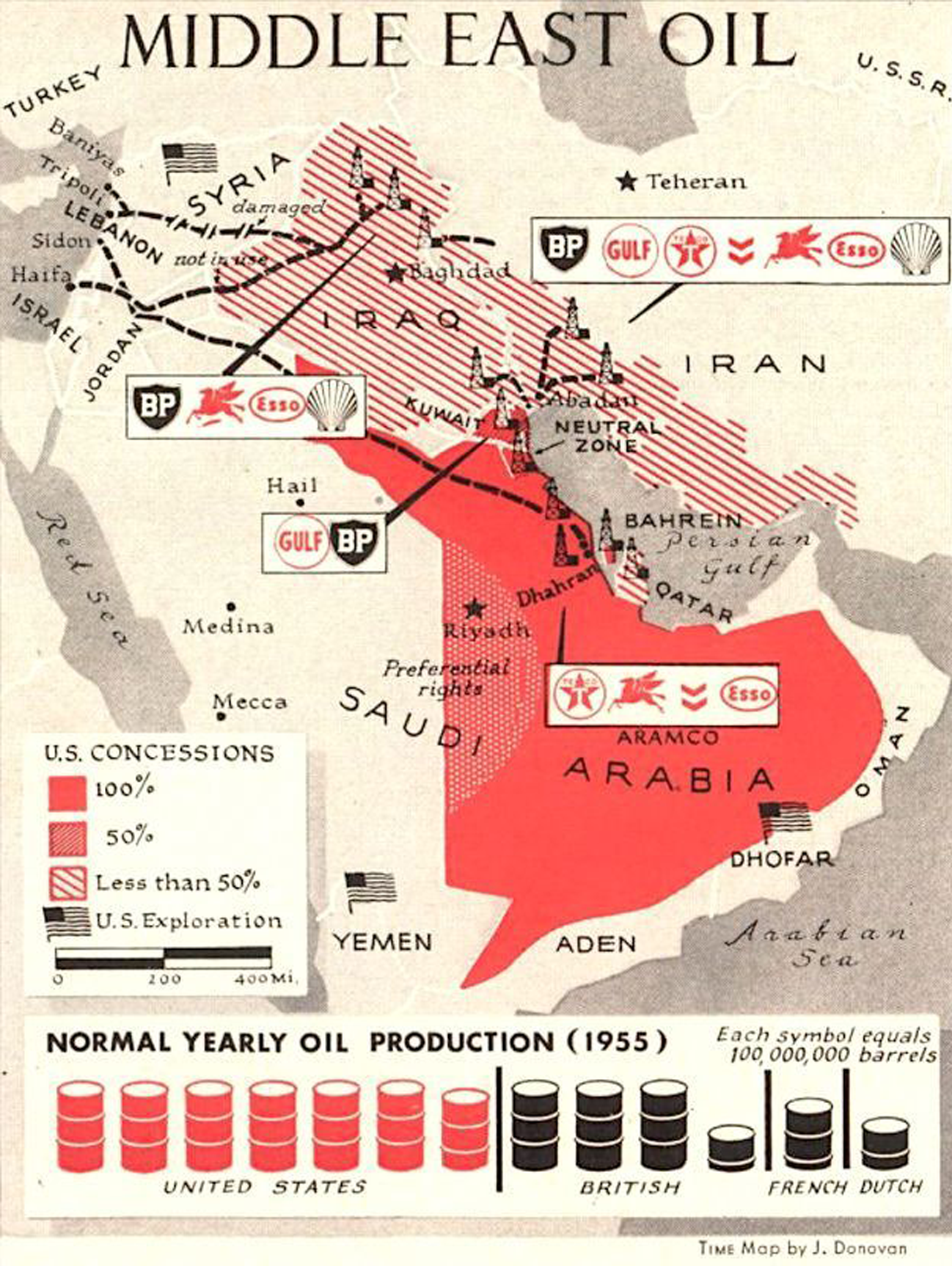
1973 oil crisis
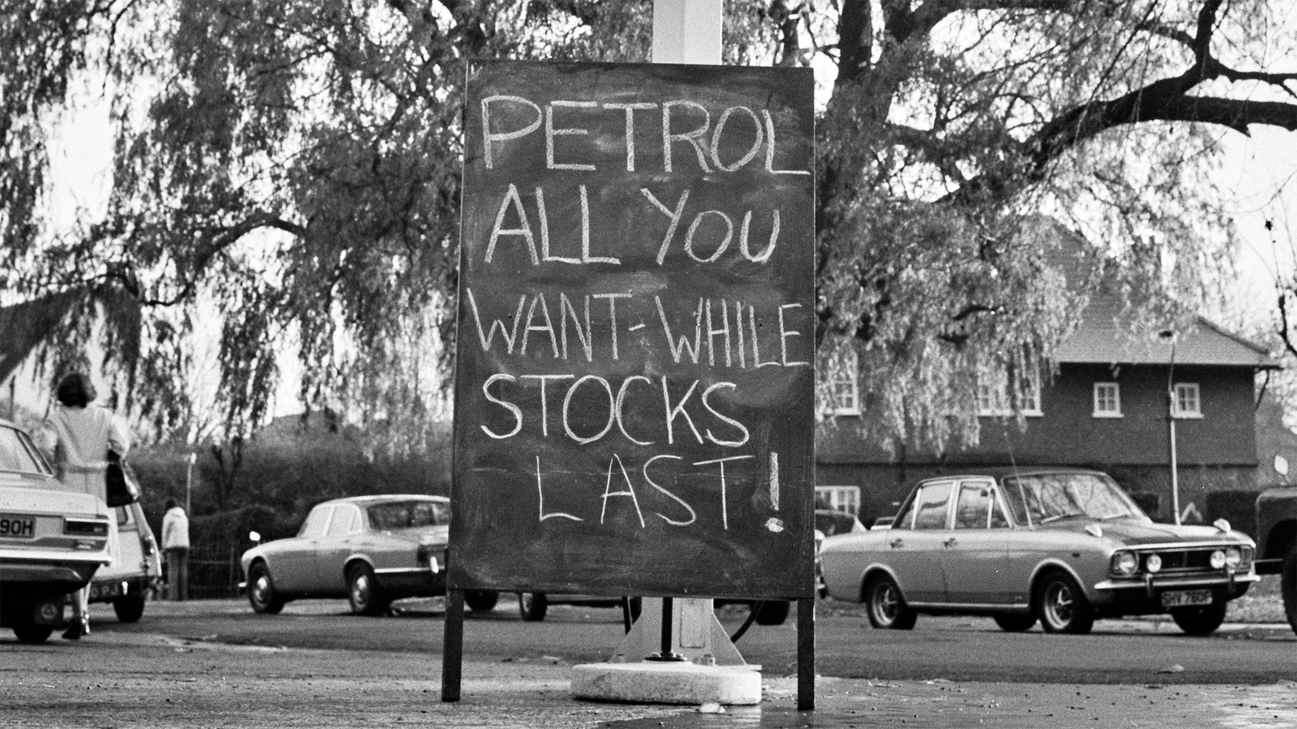
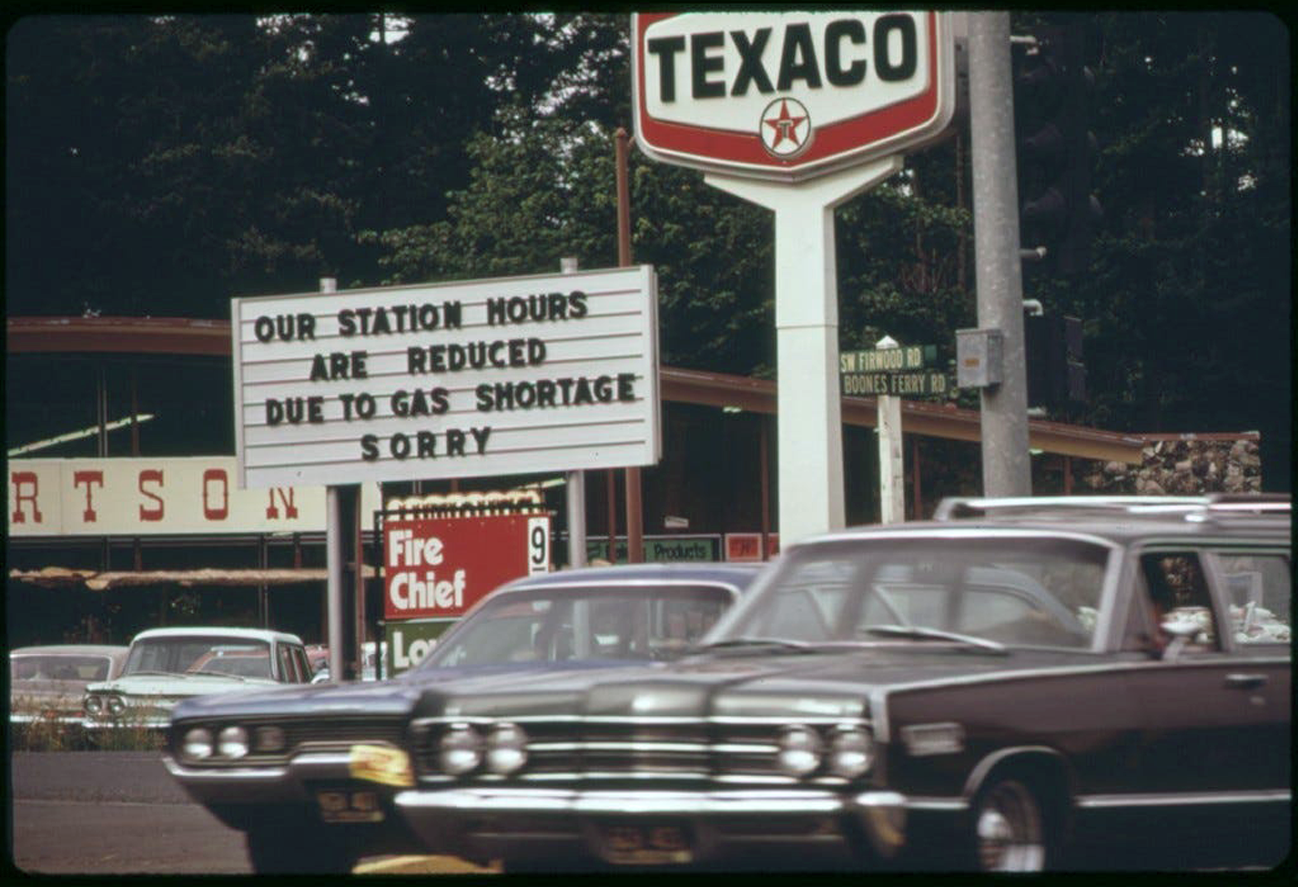
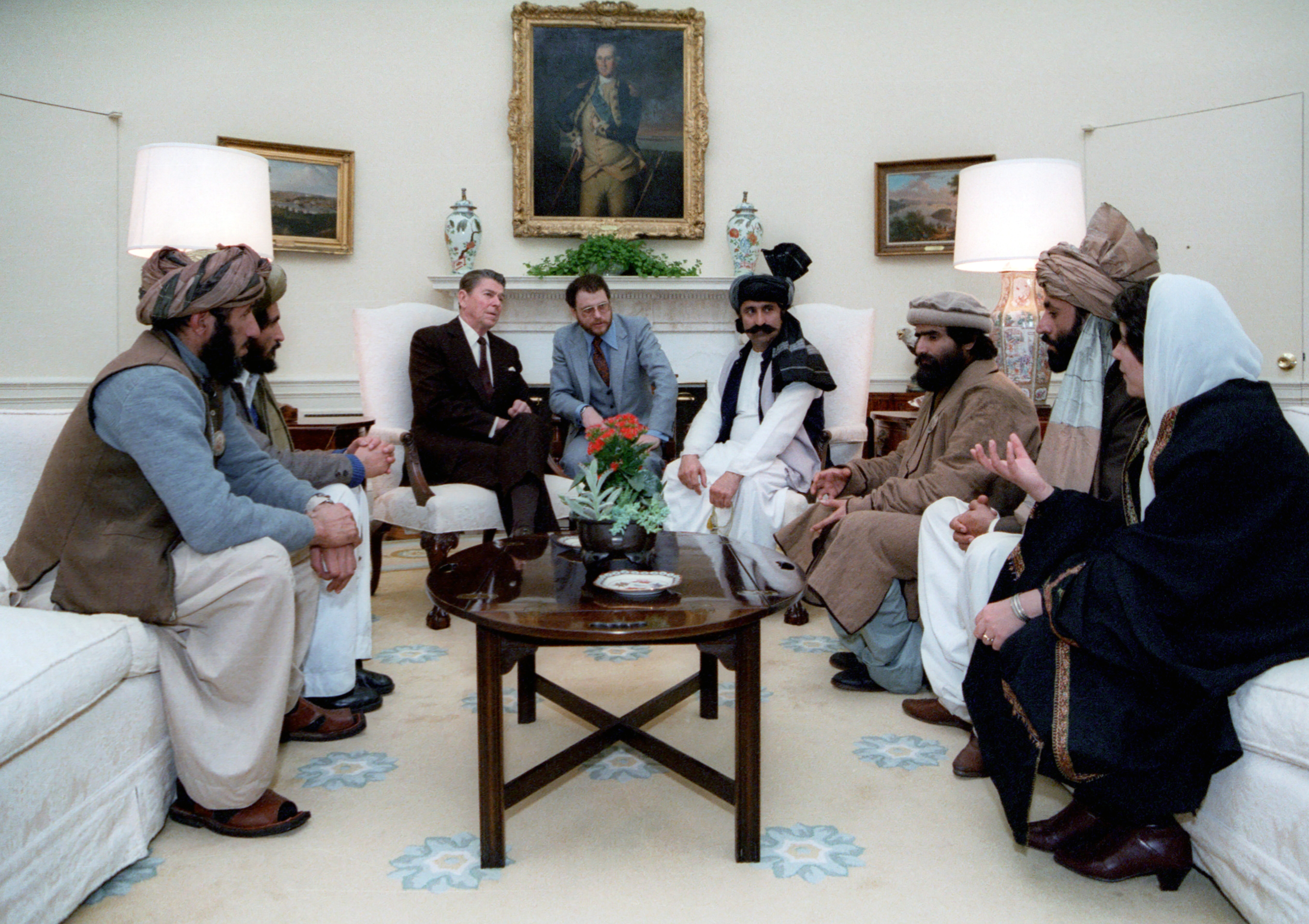
Operation Cyclone… Iran–Contra affair… The USA and the UK were funding Afghan mujahideen from 1979 to 1992, prior to and during the military intervention by the USSR in support of the Democratic Republic of Afghanistan. It is now know that the CIA and MI6 were supporting militant Islamic groups, including groups with jihadist ties, that were favored by the regime of Muhammad Zia-ul-Haq in neighboring Pakistan, rather than other, less ideological Afghan resistance groups that had also been fighting the Soviet-oriented Democratic Republic of Afghanistan administration since before the Soviet intervention.
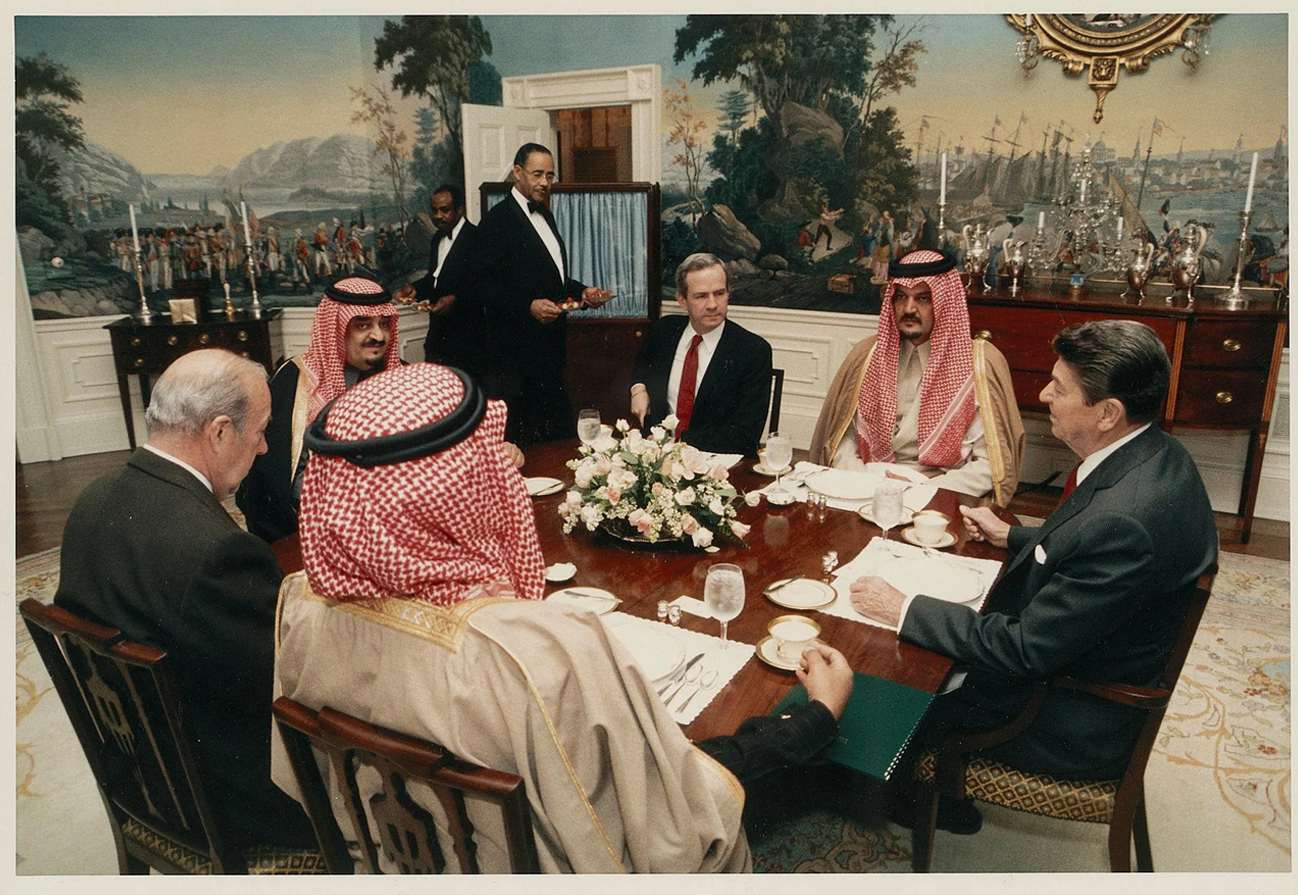
References
Ahmed, N. (2014, March 20). Iraq invasion was about oil. The Guardian. https://www.theguardian.com/environment/earth-insight/2014/mar/20/iraq-war-oil-resources-energy-peak-scarcity-economy
Al-Rasheed, M. (2022, September 1). Oil and the Geopolitics of Empire in the Middle East. Catalyst Review. https://catalyst-journal.com/2022/09/oil-and-the-geopolitics-of-empire-in-the-middle-east
Ashton, N., & Gibson, B. (2012). The Iran-Iraq War: New International Perspectives. Taylor & Francis Group.
Baker, R. W., Ismael, S. T., & Ismael, T. Y. (2010). Cultural Cleansing in Iraq: Why Museums Were Looted, Libraries Burned and Academics Murdered. Pluto Press.
Basedau, M., & Lay, J. (2009). Resource Curse or Rentier Peace? The Ambiguous Effects of Oil Wealth and Oil Dependence on Violent Conflict. Journal of Peace Research, 46 (6), 757–776. http://jpr.sagepub.com/content/46/6/757.abstract
Basosi, D., Garavini, G., & Trentin, M. (2018). Counter-Shock: The Oil Counter-Revolution of The 1980s. I. B. Tauris.
Beblawi, H., & Luciani, G. (Eds.). (1987). The Rentier State. Croom Helm.
Bini, E., Garavini, G., & Romero, F. (Eds.). (2016). Oil Shock: The 1973 Crisis and Its Economic Legacy. I. B. Tauris.
Bridge, G. (2008). Global production networks and the extractive sector: governing resource-based development. Journal of Economic Geography, 8(3), 389–419. https://doi.org/10.1093/jeg/lbn009
Bronson, R. (2008). Thicker Than Oil: America’s Uneasy Partnership with Saudi Arabia. Oxford University Press.
Brunnschweiler, C. N., & Bulte, E. H. (2008). The resource curse revisited and revised: A tale of paradoxes and red herrings. Journal of Environmental Economics and Management, 55 (3), 248–264. http://www.sciencedirect.com/science/article/pii/S0095069608000193
Colgan, J. D. (2013). Petro-Aggression: When Oil Causes War. Cambridge University Press.
Collier, P., & Hoeffler, A. (2005). Resource Rents, Governance, and Conflict. Journal of Conflict Resolution, 49 (4), 625–633. https://doi.org/10.1177/0022002705277551
Cooley, J. K. (2005). An Alliance Against Babylon: The US, Israel, and Iraq. Pluto Press.
Cramer, J., & Thrall, A. T. (Eds.). (2011). Why Did the United States Invade Iraq? Taylor & Francis.
Davidson, C. (2012). After the Sheikhs: The Coming Collapse of the Gulf Monarchies. C. Hurst & Company.
Davidson, C. (2016). Shadow Wars: The Secret Struggle for the Middle East. Oneworld Publications.
Everly, S. (2023, June 23). The top-secret Cold War plan to keep soviet hands off Middle Eastern oil. Politico. https://www.politico.eu/article/the-top-secret-cold-war-plan-to-keep-soviet-hands-off-middle-eastern-oil/
Friedman, T. (2006). The First Law of Petropolitics. Foreign Policy, 154(May), 28–36. https://foreignpolicy.com/2009/10/16/the-first-law-of-petropolitics/
Harvey, D. (2003). The New Imperialism. Oxford University Press.
Herb, M. (2014). The Wages of Oil: Parliaments and Economic Development in Kuwait and the UAE. Cornell University Press.
Hodges, M. (2014, July 10). Dealing in death. New Statesman, 143(5217), 50–51. https://www.newstatesman.com/uncategorized/2014/07/dealing-death-secrets-britain-s-arms-trade
Jenkins, J. (2017, November 24). The Middle East’s great game. New Statesman, 146(5394), 34–37. https://www.newstatesman.com/long-reads/2017/11/new-great-game-middle-east
Khashan, H. (2017). Shadow Wars: The Secret Struggle for the Middle East. Middle East Quarterly, 24(2). https://www.meforum.org/middle-east-quarterly/book-reviews/shadow-wars-the-secret-struggle-for-the-middle
Little, D. (2017). Shadow Wars: The Secret Struggle for the Middle East. The Middle East Journal, 71(2), 328–330. https://www.jstor.org/stable/90016332
Looney, R. E. (2011). Handbook of Oil Politics. Taylor & Francis.
Losman, D. L. (2010). The Rentier State And National Oil Companies: An Economic And Political Perspective. The Middle East Journal, 64(3), 427–445.
Macalister, T. (2016, July 7). US and Britain wrangled over Iraq’s oil in aftermath of war, Chilcot shows. The Guardian. https://www.theguardian.com/uk-news/2016/jul/07/us-and-britain-wrangled-over-iraqs-oil-in-aftermath-of-war-chilcot-shows
Mangold, P. (2016). What the British Did: Two Centuries in the Middle East. I. B. Tauris.
McNally, R. (2017). Crude Volatility: The History and the Future of Boom-Bust Oil Prices. Columbia University Press.
Miller, D. (Ed.) (2004). Tell Me Lies: Propaganda and Media Distortion in the Attack on Iraq. Pluto Press.
More, C. (2009). Black Gold: Britain and Oil in the Twentieth Century. Bloomsbury Publishing.
Morton, M. Q. (2016). Keepers of the Golden Shore: A History of the United Arab Emirates. Reaktion Books.
O’Grady, S. (2023, July 13). Once Upon a Time in Iraq review: A sensitively made film about the war. The Independent. https://www.independent.co.uk/arts-entertainment/tv/reviews/once-upon-a-time-in-iraq-bbc2-review-saddam-hussein-tony-blair-isis-a9616151.html
Parker, C. (2015). Making the Desert Modern: Americans, Arabs, and Oil on the Saudi Frontier, 1933–1973. University of Massachusetts Press.
Pelletière, S. C. (2004). America’s Oil Wars. Bloomsbury Publishing.
Riedel, B. (2023, February 10). 75 years after a historic meeting on the USS Quincy, US-Saudi relations are in need of a true re-think. The Brookings Institution. https://www.brookings.edu/articles/75-years-after-a-historic-meeting-on-the-uss-quincy-us-saudi-relations-are-in-need-of-a-true-re-think/
Ross, M. L. (1999). The political economy of the resource curse. World Politics, 51(2), 297–322. https://www.jstor.org/stable/25054077
Ross, M. L. (2012). The oil curse: How petroleum wealth shapes the development of nations. Princeton University Press.
Rutledge, E. J. (2017). Oil rent, the Rentier State/Resource Curse narrative and the GCC countries. OPEC Energy Review, 41(2), 145–159. https://doi.org/10.1111/opec.12098
Schwarz, J. (2016, January 6). One Map That Explains the Dangerous Saudi-Iranian Conflict. The Intercept_. https://theintercept.com/2016/01/06/one-map-that-explains-the-dangerous-saudi-iranian-conflict/
Slater, R. (2010). Seizing Power: The Grab for Global Oil Wealth. John Wiley & Sons.
Waterbury, J. (2017). Shadow Wars: The Secret Struggle for the Middle East. Foreign Affairs, 96(1), 185–185.
Wolfe-Hunnicutt, B. (2021). The Paranoid Style in American Diplomacy: Oil and Arab Nationalism in Iraq. Stanford University Press.
Yetiv, S. A. (2004). Crude Awakenings: Global Oil Security and American Foreign Policy. Cornell University Press.
Yetiv, S. A. (2011). The Petroleum Triangle: Oil, Globalisation, and Terror. Cornell University Press.
Yetiv, S. A. (2015). Myths of the Oil Boom: American National Security in a Global Energy Market. Oxford University Press.
